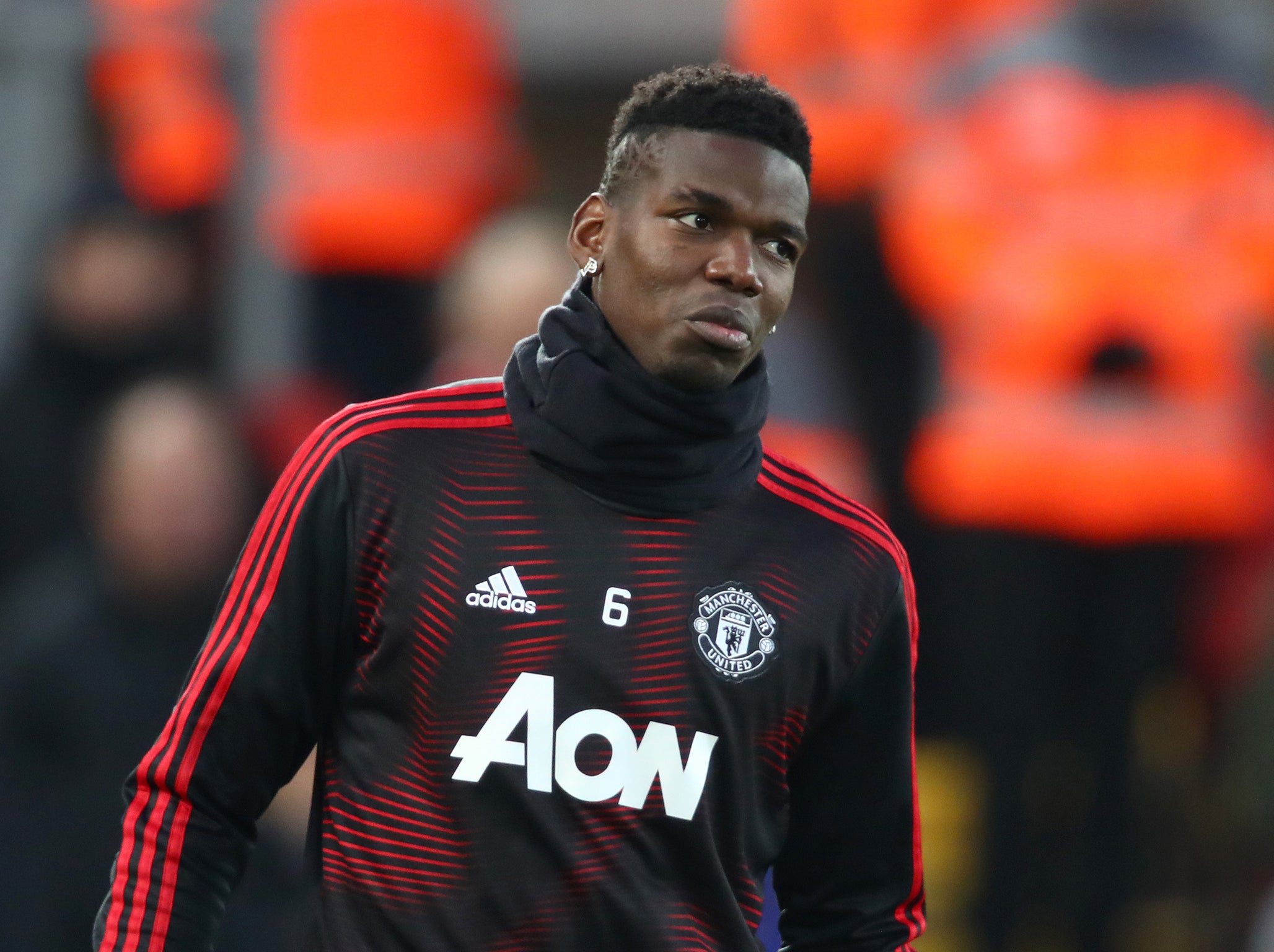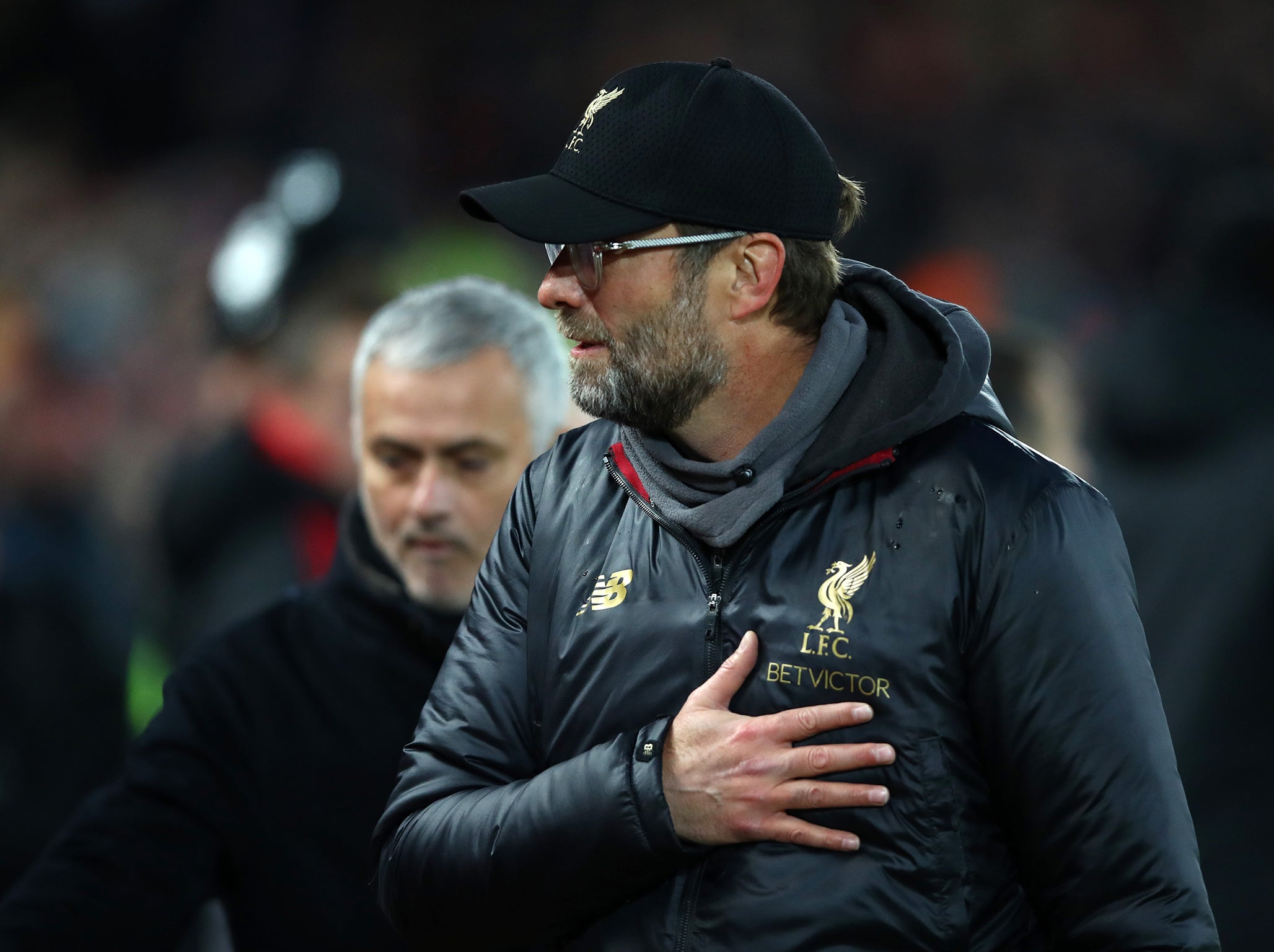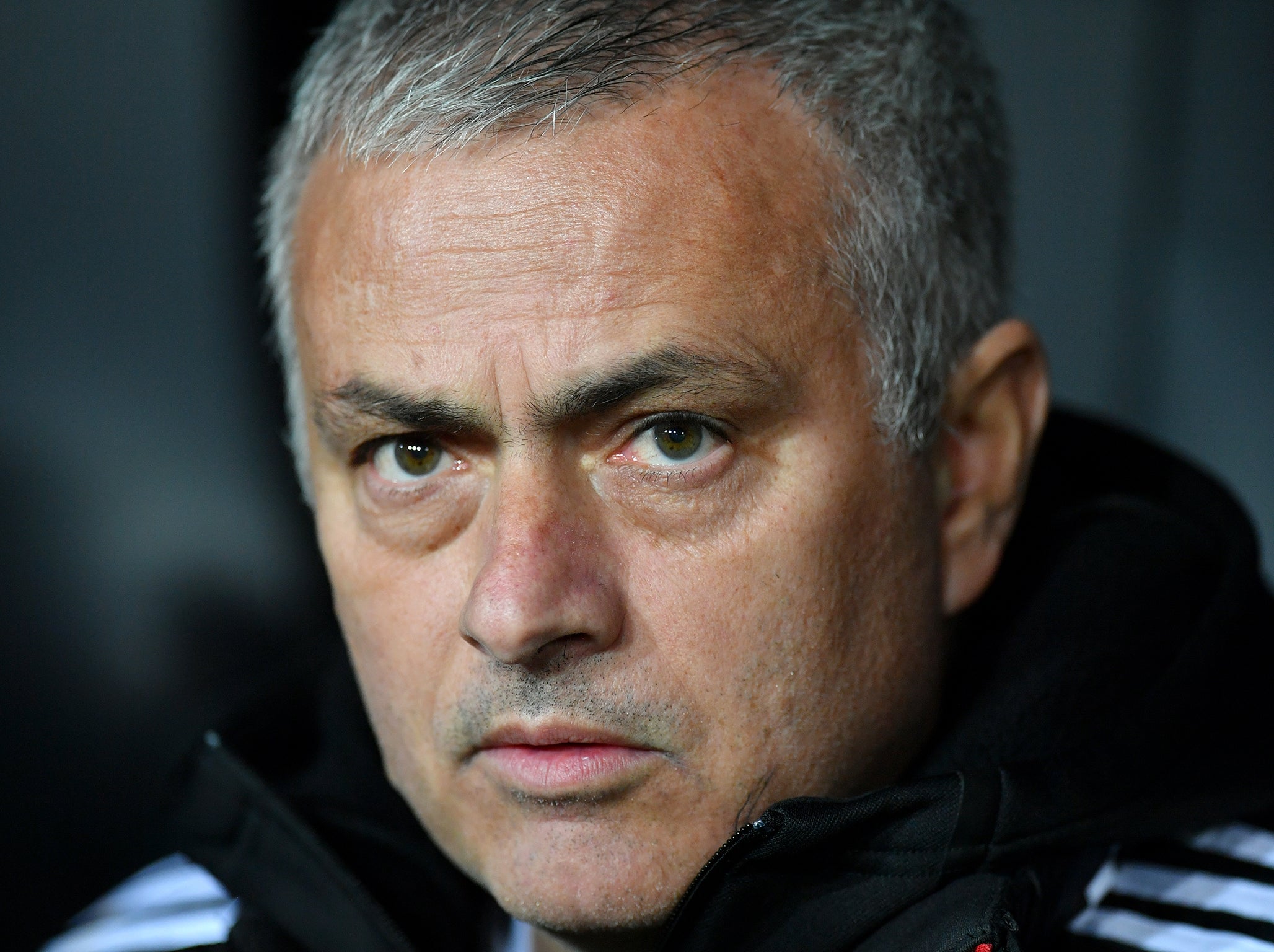What the dying minutes of Jose Mourinho’s Manchester United reign tell us about the club’s future
Against Liverpool, Manchester United perfectly represented Mourinho as a man and a manager this season: confused, isolated, tired, joyless and utterly miserable
That name again. The name which had trailed Jose Mourinho around, almost from the moment the midfielder was signed until his final words as Manchester United’s manager. The name which came to represent Mourinho’s failings – the sort of failing it seems Jurgen Klopp would surely not make: his failure to inspire a world class talent and his failure to relate to a world class reputation. That name: Pogba.
It was the last question of a press conference on Sunday evening where Mourinho had revealed everything about the state of his team. “The players,” he said, “gave everything and when the players give everything I am never frustrated towards them. They play in relation to their qualities, the same way Liverpool play in relation to their qualities.”
Essentially, he was conceding that Manchester United are not very good at all, that a defeat was probably expected – that Liverpool were miles ahead of them, that the 19-point gap between the clubs in the league is not an illusion.
Another word: quality. It kept returning.
“There are qualities that a player has or doesn't have,” he continued. “You cannot improve or make them have. Robertson, Mane, Salah, Wijnaldum, Keita, Fabinho they are physical players and on top of that they are good players technically. I also have lot of good players technically but we don’t have lots of players with that intensity, that physicality. So, when the game has high levels of intensity it is difficult for us.”
Mourinho was thinking back towards the teams of his past, as he has done frequently in the last six months. They represented him: what he was then as a person and as a football manager.
Porto were organised, hungry and aggressive and he was committed, hungry and aggressive. Inter Milan were hardened and more experienced and he was hardened and more experienced. Real Madrid were outstanding and he, operating in a medieval court that is the Santiago Bernabeu albeit with the pressure of toppling one of the greatest club sides ever in Barcelona, was actually – for one season at least – outstanding.
If he is what Manchester United are presently then other words appear: confused, isolated, tired, joyless and utterly miserable. When the cold reality of United’s position was pointed out, he in turn became cold.
“You’re eleven points off top four, Jose…”
“Yes, I know.”
Those final words…
“Pogba?”
“No…”
Why?
“Because I’m happy with Matic, Lingard and Herrera.”
And then, he was gone.

Like David Moyes, Mourinho was sacked following a wretched Sunday on Merseyside, only Moyes had lost upon his return to Goodison Park, before a statement appeared on United’s website, thanking him for the hard-work, honesty and integrity he brought to the role. The wording that appeared on manunited.com this time was less flattering and the post was reduced to three short paragraphs without any reference to human resourcefulness.
It should not really come as a surprise that Mourinho departs after a humbling defeat at Liverpool, one which brought him to be complimentary about a team that has probably troubled him more than any other during his time managing in England and equally, one that he has appeared to revel in beating.
History reflects that when there is confirmation of one club clearly being better than the other, it is not long until a manager’s cycle is over. Moyes was sacked after defeat at Everton but four weeks before that game – in a period where United also lost to Manchester City – Liverpool had won against the champions at Old Trafford, though the margin of victory should have been greater than 3-0.
In 1997, Liverpool’s board started discussing Roy Evans’s future after United had walked it at Anfield where they won 3-1, a result which kept United top, sending Liverpool down to eighth. Sixth months later, Gerard Houllier arrived. Before that there was the drama of Graeme Souness’s reign who realised it was time to go before an FA Cup third round replay defeat to Bristol City when he listened to a team-talk through the walls of room in the Moat House hotel, hearing Russell Osman telling his players that Liverpool were as “weak as shit.” He would have left two weeks before had Liverpool not found a way to recover from three goals down to draw with United when he appeared in the press room worn out despite the improbable narrative on a freezing night. Souness knew that even with Liverpool’s recovery, his team – in eighth – trailed United at the summit of the Premier League by 21 points.

When it seems that one team is everything the other is not, changes are not far away. Klopp’s plan was better than Mourinho’s on Sunday, with Klopp always a step ahead. To try and stop Liverpool’s front three, Mourinho deployed a back five but Klopp anticipated that would happen and made the three play as a triangle, overloading on the right side of Liverpool’s attack. It means that Matteo Darmian and Diego Dalot were making space and their roles were redundant. Though Mourinho identified what was happening at half-time, Klopp then introduced Xherdan Shaqiri and suddenly, Liverpool’s front four was able to overwhelm United’s defence.
There is a key difference between the environments that Mourinho and Klopp operate in because the Glazer family bought into a winning culture without creating one themselves while Fenway Sports Group bought a club that was just above the relegation zone and managed by Roy Hodgson, so they have been more willing to be led albeit within a structure they were determined to cling on to.
And yet, though it might seem that Mourinho has a fair argument over some of the deep-lying issues, there were lots of deep-lying issues when Klopp arrived at Liverpool and he has found a way to make them go away through sheer force and the persuasiveness of his personality.

Ed Woodward must dream of being able to appoint Klopp right now, someone who has been consistently sound in recruitment, a manager who has been willing to delegate and trusting with it – especially in his relationship with Michael Edwards, the sporting director; a manager Woodward, indeed, wanted to appoint after Moyes’ departure only to deliver an unusual pitch in Munich where he described Old Trafford being “a mythical place,” where “dreams came true” because it was like being “an adult in Disneyland.”
In Raphael Honigstein's book, Bring the Noise, it is claimed, Klopp unsurprisingly found the description “unsexy” and this again relates to his judgement on people, knowing when to say no and knowing which path to follow: who is worth working with.
“Pogba?” he said when the midfielder signed for United for all that money. “A huge fee but I like him a lot. He could play for any team and make them better.”
Join our commenting forum
Join thought-provoking conversations, follow other Independent readers and see their replies
Comments